
UBS Preparing to Cut More Than Half of Credit Suisse Workforce
UBS Group AG is planning to cut more than half of Credit Suisse Group AG’s workforce starting next
2023-06-28 01:54

The Great Grift: More than $200 billion in COVID-19 aid may have been stolen, federal watchdog says
More than $200 billion may have been stolen from two large COVID-19 relief initiatives
2023-06-28 01:54

Diageo ends its 15-year partnership with Diddy following lawsuit
Spirits maker Diageo has cut ties with Sean "Diddy" Combs, ending a lucrative 15-year partnership that recently culminated in a racial discrimination lawsuit.
2023-06-28 01:47

Judge denies Sam Bankman-Fried's motion to dismiss charges
A federal judge on Tuesday denied efforts by Sam Bankman-Fried, the crypto entrepreneur accused of orchestrating a multibillion-dollar fraud, to have some of his criminal charges thrown out.
2023-06-28 01:27

Living Like Summer Flowers with Continuous Development for Prosperity, Eastern Yixiang - China Fashion Gala Grand Opening
SHENZHEN, China--(BUSINESS WIRE)--Jun 27, 2023--
2023-06-28 01:27
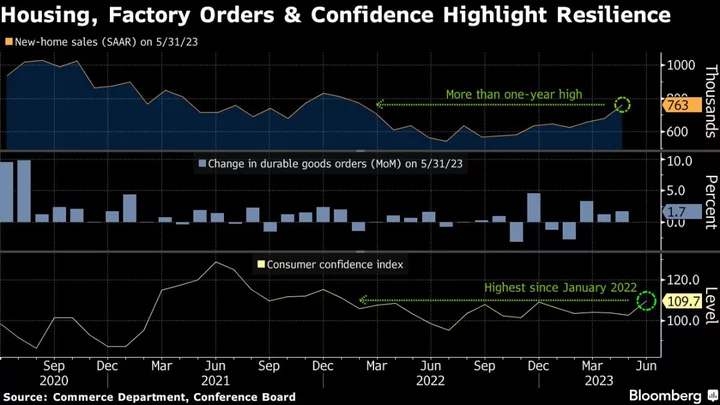
Surprisingly Strong US Economic Data Keeps Recession Fears at Bay
A flurry of data showed surprising strength in several corners of the US economy, painting a picture of
2023-06-28 01:24

Spirits giant Diageo cuts ties with Sean 'Diddy' Combs and calls musician's lawsuit a 'sham action'
Spirits giant Diageo says it’s cutting ties with rapper and entrepreneur Sean “Diddy” Combs following his move to sue the company over allegations of racism in the handling of his liquor brands, according to a Tuesday court filing
2023-06-28 01:23

Faraday Future investors commit $90 million in funding
Faraday Future Intelligent Electric has received $90 million in funding commitment from its existing investors, the electric-vehicle startup
2023-06-28 01:18

Aktana Announces New CEO
SAN FRANCISCO--(BUSINESS WIRE)--Jun 27, 2023--
2023-06-28 01:18
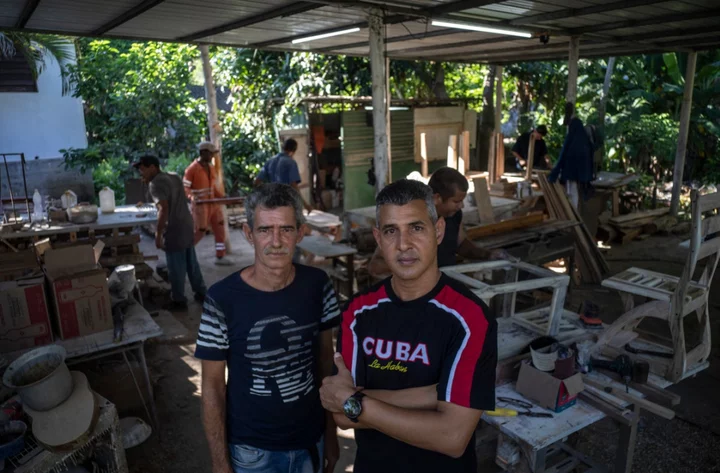
Cuban entrepreneurs get business training from the US, and hope that Biden lifts sanctions
Musicians Ana María Torres and María Carla Puga started making bracelets and necklaces at home in Cuba during the pandemic, and they now have a flourishing business. On an island that for decades prohibited private enterprise, they have had an unlikely adviser: the U.S. Embassy. Torres and Puga are part of a small group of entrepreneurs benefiting from a business training program the embassy is offering in Cuba, where many young entrepreneurs are less wary of the American government than those in previous generations. “We see it as a great opportunity,” says Torres, 25, who co-founded a store and workshop named Ama, which has a cafeteria and employs 12 people. Ama is one of almost 8,000 small- and medium-sized companies that were legally authorized to operate in Cuba over the past year and a half. The embassy training featured weekly online meetings covering everything from marketing tools and brand management to basic finances and the creation of web pages. The owners of Ama were among 30 entrepreneurs the embassy selected from 500 applicants. Torres and Puga recall the look of fear — and surprise — in an older driver’s face when, on their way to exhibit some of their products, they asked him to drop them at the U.S. Embassy. The driver suggested he drop them off one block away instead. “Our generation doesn't really have so much limitation with respect to daring to take part in these kinds of things with the U.S. embassy, because the context is different,” says Puga, 29. “We know there are some conflicts, but we also know there is a lot that is being tried, especially with Cuban entrepreneurs, and we’re really not afraid.” In 1968, the Cuban government shut down the few remaining private businesses that were left on the island after the 1959 revolution. In 2010, however, then-President Raúl Castro initiated a reform to boost the local economy and allowed independent workers to work in activities like rental houses, restaurants and transportation. These were further developed amid a 2014 rapprochement with the U.S. during the administration of President Barack Obama. Sanctions also were eased during that period. Policy towards the island hardened during the administration of President Donald Trump, and the economy has yet to recover from its 11% contraction in 2020. In tourism alone -- a mainstay for national income -- the island welcomed just 1.7 million visitors last year, less than half the amount of 2018. Cubans have been feeling the effects of yet another crisis, reflected by long lines to get fuel, shortages of basic goods, blackouts, inflation and record emigration. In September 2021, Cuba legalized the creation of small- and medium-sized businesses to help an economy in crisis, a decision that Cubans and observers of the nation's politics viewed as historic. Since then, 7,842 small- and medium-size companies were created, along with 65 non-agricultural cooperatives, generating some 212,000 jobs combined. However, decades living in a state-dominated economy led to the loss of business know-how, including financial administration, marketing strategies, publicity and customer relations. “I am very happy with the renewed willingness of the United States embassy to pave the way for us in terms of knowledge... that is something we were lacking,” says Adriana Heredia, a 30-year-old partner of Beyond Roots, a private enterprise that includes a clothing store, a beauty salon specializing in afro hair and various other cultural projects. Cuban entrepreneurs say they appreciate efforts like the U.S. embassy’s business training program, but they also express concern about the negative impact the U.S.-imposed sanctions have had on their economy. “There is a negative impact (of the sanctions) that is evident,” economist Ricardo Torres, a researcher at the Center for Latin American Studies at the American University in Washington, told the AP. “The United States is the dominant market, the dominant economy. So all the financial and commercial restrictions that... weigh on entities that are based in Cuba will negatively affect entrepreneurs.” Last month, representatives of 300 small- and medium-sized businesses sent a letter to President Joe Biden requesting, among other things, facilitation of financial transactions, the establishment of some sort of permit for U.S. businessmen to invest in Cuba and trade with private companies, They also requested removal of the island from U.S. list of countries that sponsor terrorism. Cuban entrepreneurs feel they are caught between two forces: U.S. sanctions and limitations within Cuba itself such as high taxes, a lack of financing and state control over imports and exports. The island also lacks permits for professionals to establish themselves as independent workers. “Unfortunately, Cuba’s private enterprises end up being subjected to a sort of crossfire,” Torres said. The Biden administration has promised several times to reverse some measures affecting the island and its fledgling entrepreneurs, but the Cuban government says Washington has yet to deliver. Benjamin Ziff, charge d’affairs at the U.S. embassy in Cuba, dismisses claims that the administration has implemented few changes. He pointed to the resumption of some flights and the sending of remittances, as well as a slew of educational and religious exchanges between both nations. The embassy's business training classes, while a small measure to boost the private sector, is one of them. “Cuba’s future lies in its private sector and those who say it is a necessary evil are completely wrong,” Ziff said in an interview. “It is an increasingly necessary good for the well-being of the people.” Read More Ukraine war’s heaviest fight rages in east - follow live Charity boss speaks out over ‘traumatic’ encounter with royal aide Sierra Leone's president wins second term without need for runoff, election commission announces Music Review: Kim Petras makes flirty Eurodance-pop in major-label debut Eni chief executive says plan for pipeline to move gas to Cyprus 'part of our discussion'
2023-06-28 01:15
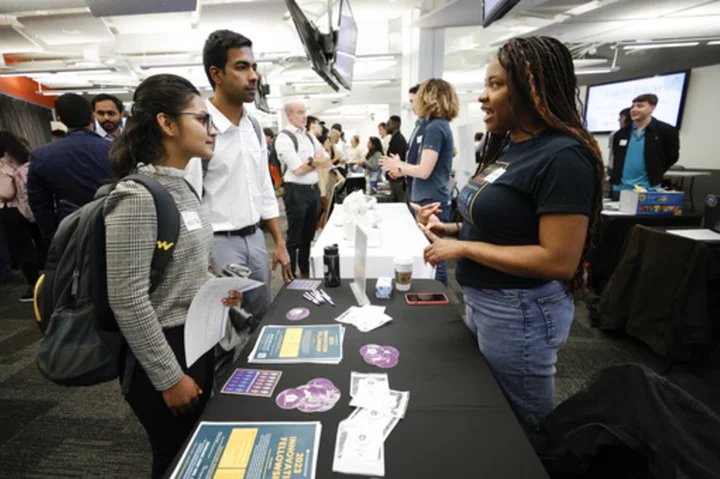
Still hiring: Big Tech layoffs give other sectors an opening
The recent mass layoffs at companies like Google, Microsoft, Amazon and Meta came as a shock the thousands of workers who’d never experienced upheaval in the tech sector
2023-06-28 00:59

Explainer-How risky is it to extend Canadian mortgage amortizations?
By Nivedita Balu and Fergal Smith TORONTO Canada's record pace of interest rate hikes has led to the
2023-06-28 00:58
You Might Like...
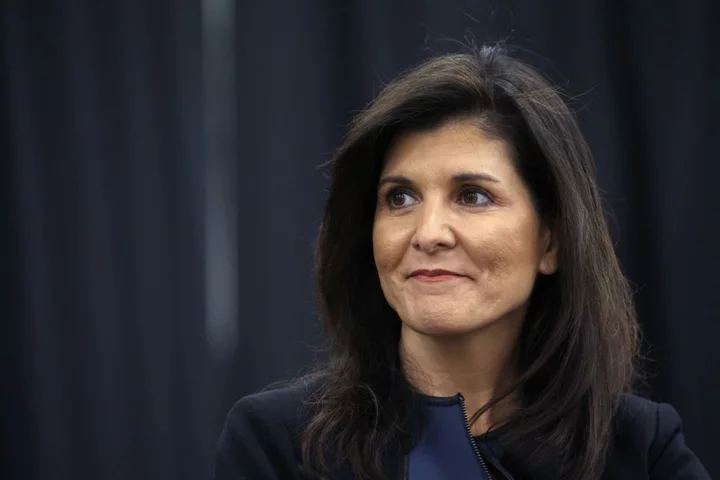
Haley Has $9.1 Million Cash for Primaries, Topping DeSantis

SoftBank Corp raises $800 million through Japan's first listing of bond-type shares

KuCoin Dorian Vincileoni, collaboration between CEX and DEX will boost Web3 at Proof Of Talk Conference

Japan's service activity maintains firm pace as demand picks up - PMI

IM Elect Alice Lee, GM Abhimanyu Mishra and GM Melikset Khachiyan Crowned Winners in National Junior and Senior Championships in Saint Louis
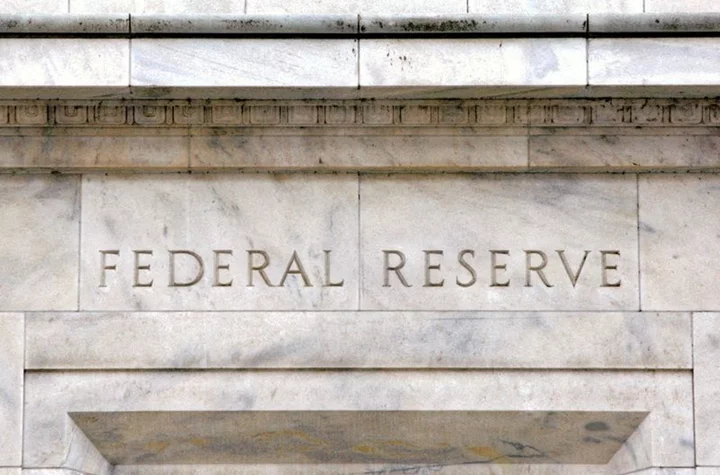
Column-September sees Fed dot plot thicken :Mike Dolan

Western businesses must find a way to work with China-Stellantis CEO

NMG Selects Pomerleau for Construction Management Preparation of its Phase-2 Facilities: Focus on Efficient, Cost-Optimized, and Safe Execution once FID is Reached
